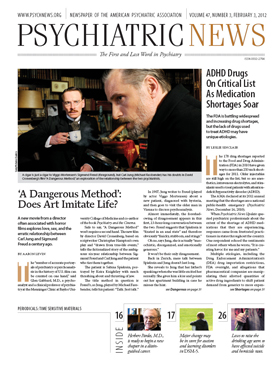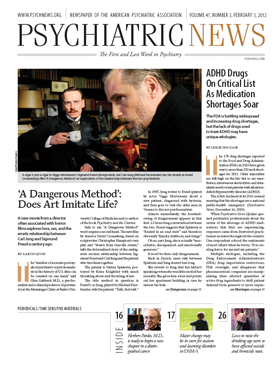In what is purported to be the first large-scale study to address treatment of prescription opioid addiction, researchers at McLean Hospital and Harvard Medical School have reported that individuals addicted to prescription painkillers reduce their opioid abuse when treated with sublingual buprenorphine-naloxone (Suboxone).
In a press release describing the study from McLean Hospital, a Harvard Medical School affiliate, lead author Roger Weiss, M.D., chief of the Division of Alcohol and Drug Abuse at McLean, explained that “most studies examining treatments for opioid dependence have been done with heroin-dependent patients at methadone clinics, resulting in the lack of data on treatment for patients addicted to prescription painkillers, especially in the offices of primary care doctors.
“Despite the tremendous increase in the prevalence of addiction to prescription painkillers, little research has focused on this patient population,” said Weiss, who is also a professor of psychiatry at Harvard Medical School. “This is notable because recent data tell us that the use of prescription painkillers for nonmedical reasons is 20 times more common than use of heroin, and 50 percent more people seek treatment for prescription drug abuse than for heroin.”
This study, a randomized, two-phase adaptive treatment research design, was intended to approximate clinical practice, identifying a treatment strategy for a disorder, as well as the optimal response to an initial treatment failure.
The study population consisted of 653 treatment-seeking outpatients, aged 18 or older, who were dependent on prescription opioids (DSM-IV criteria), presenting at 10 U.S. sites. Participants were excluded for heroin use or dependence or comorbid physical or mental disorders.
The study was conducted in two phases. In phase 1, the “brief treatment” phase, subjects were randomized to receive either standard medical plus individual opioid-dependence counseling (ODC) or standard medical management alone. The ODC was based on drug-counseling manuals with demonstrated efficacy, modified for this particular study, and covered a wide range of relapse-prevention issues in great depth.
Brief treatment consisted of induction with buprenorphine-naloxone, two weeks of stabilization, a two-week taper, and eight weeks of follow-up. At each medical visit, the study physician could adjust the dose of buprenorphine-naloxone in increments of up to 8 mg a week, based on opioid use, withdrawal symptoms, adverse effects, and craving, but not for pain. The allowable dose (expressed as buprenorphine) during stabilization was 8 mg to 32 mg a day, consistent with practice guidelines.
Overall, 43 of the 653 patients (6.6 percent) had successful outcomes in phase 1, with no difference in success rates between those receiving standard medical management alone versus standard medical management and ODC.
Unsuccessful patients were invited into the second “extended treatment” phase of the study, consisting of 12 weeks of buprenorphine-naloxone stabilization, a four-week taper, and eight weeks of follow-up, with the same process of randomization to receive either standard medical management plus individual ODC, or standard medical management alone.
In contrast to phase 1, 49.2 percent of phase 2 participants (177 of 360) attained successful outcomes while still taking naloxone, but overall success rates eight weeks after completing the medication taper dropped to 8.6 percent (31 of 360 patients), with no difference between counseling conditions.
“We were surprised by some of these findings because there was an overall assumption that this population—those who have had little to no exposure to heroin—would do better in terms of not needing long-term medication intervention,” said Weiss. “It is clear that given the prescription drug abuse epidemic, we need to continue to look at the viability of longer-term use of Suboxone and whether it can continue to provide sustained recovery from addiction to pain medications.”
Success may be just around the corner, however. “The study suggests that patients addicted to prescription opioid painkillers can be effectively treated in primary care settings using Suboxone,” said Nora Volkow, M.D., director of the National Institute on Drug Abuse, which funded the work. “However, once the medication was discontinued, patients had a high rate of relapse, so more research is needed to determine how to sustain recovery among patients addicted to opioid medications.”
The study was supported by the National Institute on Drug Abuse Clinical Trials Network (NIDA CTN), the EMMES Corp, and the Duke Clinical Research Institute in Durham under contract with the NIDA CTN. Study medication was provided by Reckitt Benckiser to the NIDA CTN.

